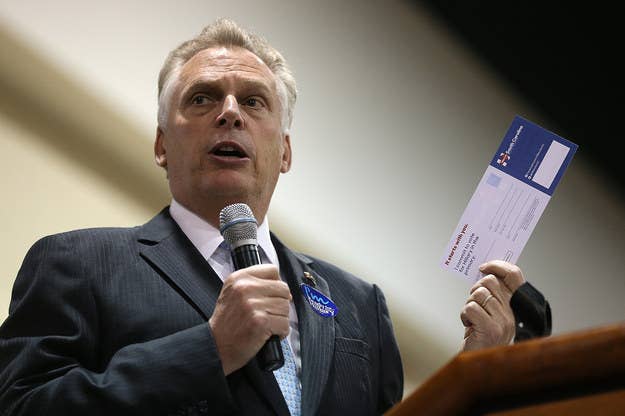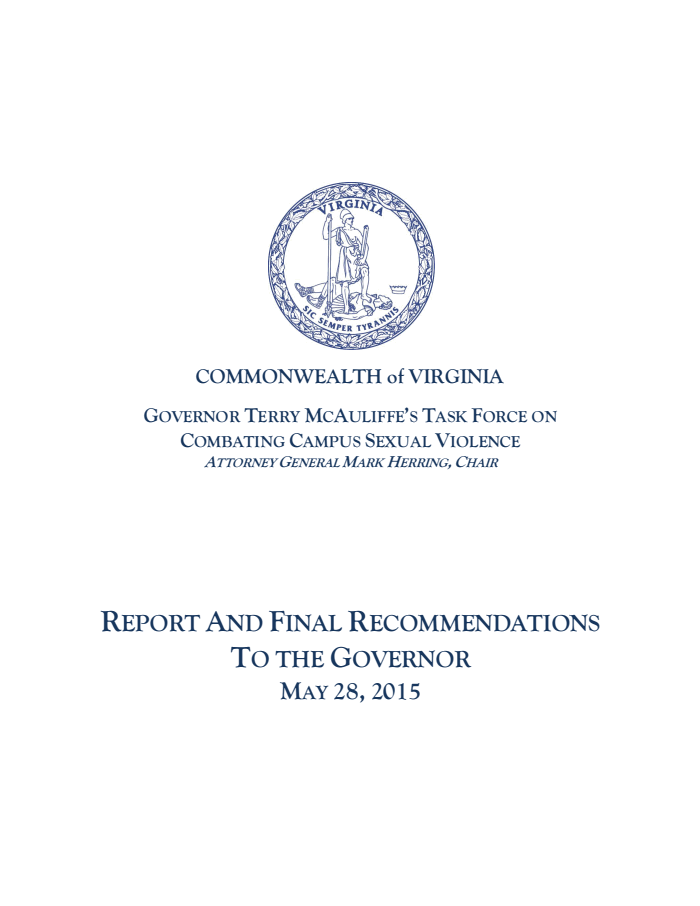
Virginia’s task force on combatting campus sexual assault presented their final report to governor Terry McAuliffe on Thursday and listed 21 recommendations, including the establishment of Sexual Assault Response Teams that will be responsible for providing a victim immediate support and information on reporting options.
According to the task force report, it's vital for victims to receive immediate support and that they are treated with respect and competence.
SARTs, as the teams will be called, will be created on all public and private universities and will include the Title IX coordinator, representatives from campus security or local law enforcement, sexual assault nurse examiners, and student affairs officials, who will be trained in trauma response and investigation by the Department of Criminal Justice Services. The report said the teams inform victims of their rights and help bring perpetrators to justice.
On August 21, 2014, McAuliffe issued an executive order establishing the task force chaired by Attorney General Mark R. Herring. The final report of recommendations was due to the governor by June 1, 2015.
“We need to send a clear message that we will not tolerate sexual violence at our schools and we will not accept a societal culture that condones it," Herring said in a statement.
The task force met monthly and was broken down into three subcommittees: prevention, response, and law enforcement.
“The task force worked diligently to grasp the scope of the problem of campus sexual violence through presentations and conversations with countless stakeholders and through sharing their professional and personal expertise,” the report reads.
The report begins saying victims of sexual assault often times hesitate to come forward and report the crime. Victims need reporting options they are simple and easy to access and should feel that they will be supported and their claims handed professionally.
The task force recommended increasing reporting options, including an online site for complaints. The reports also suggests the creation of a program titled “You Have Options,” which will include at least two law enforcement agencies such as campus police or municipal law enforcement agencies.
“If a student has been a victim, he or she should never feel further victimized by a response that is inadequate, suspicious or judgmental,” Herring said in a press conference when the task force was formed. “Every student in Virginia must know that if you report sexual violence or sexual misconduct you will not be pressured, you will not be judged and you will be treated at all times with the respect and compassion you deserve.”
There have been a number of sexual assaults reported on Virginia campuses in the past year. In April, a sexual assault was reported at Norfolk State University's library. The University of Virginia and the College of William and Mary are both under investigation by the Department of Education for Title IX violations.
The national spotlight was on Virginia in November 2014 after a Rolling Stone magazine article described a violent gang rape which allegedly occurred in a fraternity house on campus. The story has since been retracted.
The task force also suggests adopting a public awareness campaign involving officials from the governor and the attorney general's offices. The report also suggests formalizing partnerships between universities and local sexual assault crisis centers and taking bi-annual surveys at public colleges to determine how frequently campus assaults happen. The surveys will also monitor the effectiveness of the response programs.
The task force also called for the Virginia Department of Education to incorporate programs on healthy relationships in K-12 schools.

